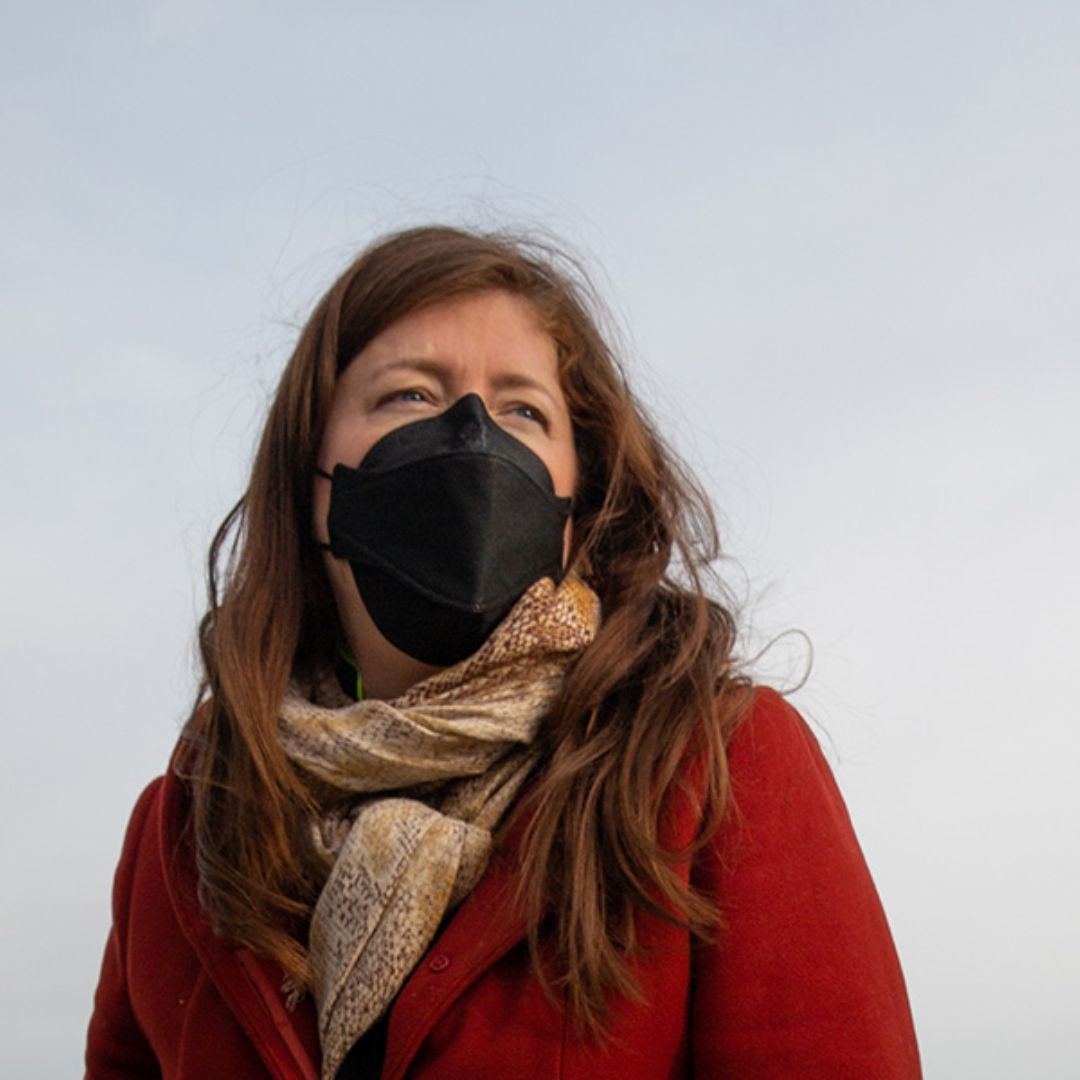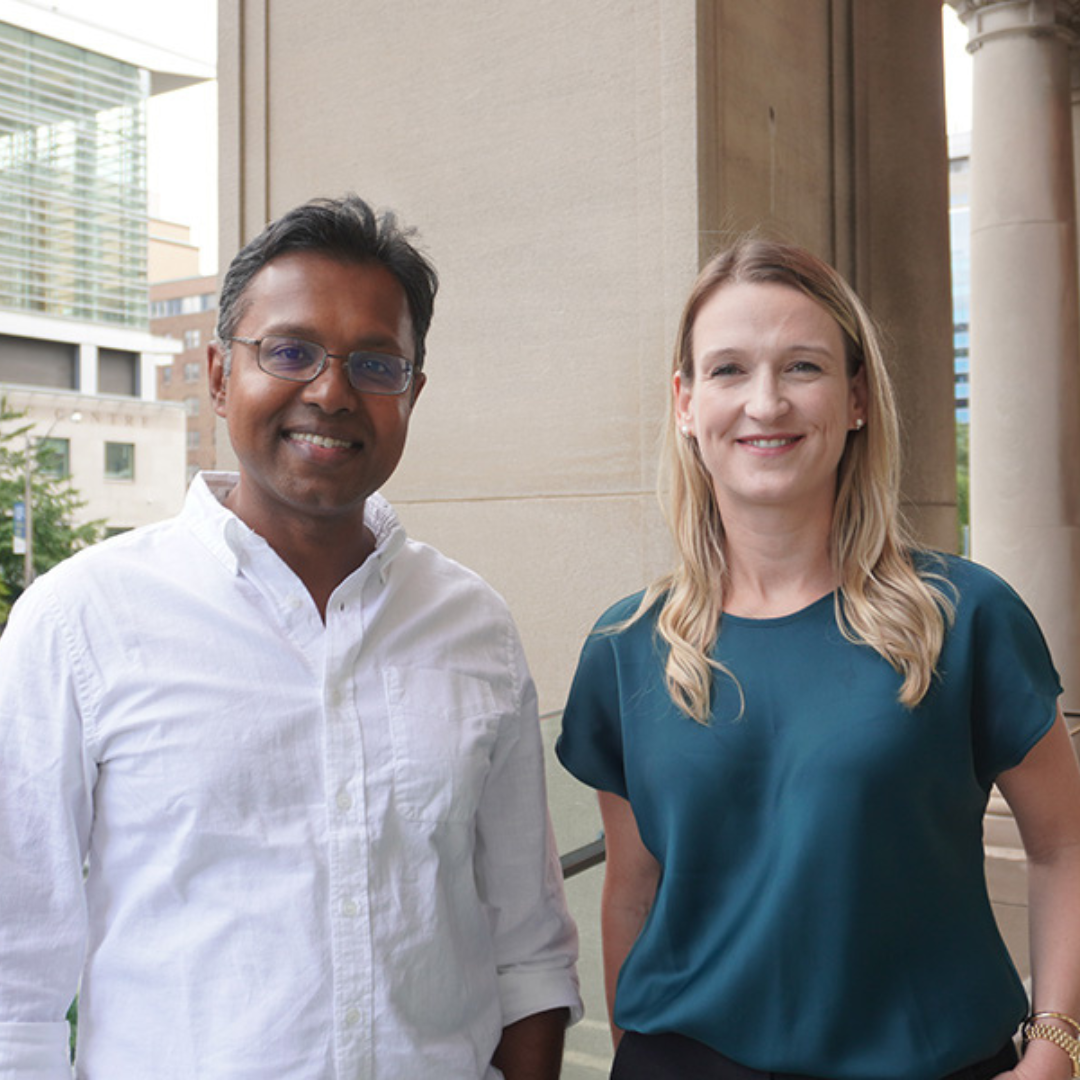
Drs. Nigil Haroon and Robert Inman (Photo by Tim Fraser)
One of the most challenging aspects of COVID-19 for the healthcare community has been understanding why the symptoms are so varied. Rheumatologists from UHN’s Arthritis Program are leading studies that may help find answers to this and other questions.
“As rheumatologists, we have been students of inflammation and immune responses,” says Dr. Robert Inman, Medical Director of UHN’s Arthritis Program and Co-Director of the UHN Spondylitis Program. Dr. Inman, along with his UHN Rheumatology colleagues, are exploring the connections between rheumatic diseases and COVID-19.
UHN is home to North America’s largest rheumatology programs. Currently, more than 160,000 people in Ontario over the age of 20 suffer from some form of rheumatoid disease. Ankylosing spondylitis, rheumatoid arthritis, psoriatic arthritis, lupus, scleroderma and Sjögren’s Syndrome all fall under the umbrella of rheumatic diseases.
International registry of patients
As the global medical community establishes a rapid response towards the COVID-19 pandemic, the relationship between rheumatic disease, immunosuppressive medications and COVID-19 infection is raising important questions, according to UHN Rheumatologist Dr. Sindhu Johnson.
As Director of the Scleroderma Program and a Clinician Scientist within the Krembil Research Institute, Dr. Johnson has built an international reputation in clinical research. The Alliance is recruiting adults with rheumatic diseases, and parents of children with rheumatic diseases into their study to obtain insights about how best to prevent or treat COVID-19 in patients with rheumatic diseases.
The lessons learned will help inform how COVID-19 is best treated in patients who do not have rheumatic disease. Dr. Johnson points to a controversial debate about the potential harm of non-steroidal anti-inflammatory drugs such as ibuprofen. “As yet, no human data has connected ibuprofen with worsening COVID systems. It’s important to do more research since so many people with arthritis and autoimmune disease rely on medications like ibuprofen to manage pain and stiffness,” says Dr. Johnson.
She is also evaluating the data on small, but highly publicized, clinical trials, which suggested that some medications, such as hydroxychloroquine, chloroquine and tocilizumab, may be helpful in treating COVID-19 patients. “These medications are frequently prescribed by Rheumatologists for their patients and it may be that these medications have a protective effect on COVID-19. “We need to be thoughtful in how we use these medications,” says Dr. Johnson.
One of the most challenging aspects of managing the COVID-19 pandemic is understanding why some people experience mild systems while others get very sick, need hospitalization and some patients die as a result of the complications such as pneumonia.
Dr. Inman and Dr. Nigil Haroon, Co-Directors of the Spondylitis Program, are investigating a possible genetic alteration which may determine how patients respond to COVID-19.
“We know that COVID-19 tends to be worse in patients who are older, or who have diabetes or heart disease,” says Dr. Inman. “But how does this explain otherwise healthy young people developing life-threatening COVID-19? Why are we seeing family clusters of the disease in some areas?”
The answers may lie in the body’s immune response. What Drs. Iman and Haroon know through their previous research is that some inflammatory diseases develop as a result of a genetic deficiency which causes an overexpression of cytokines.
Cytokine storm
Dr. Inman comments that a “cytokine storm syndrome” occurs in certain COVID-19 patients causing their immune balance to break down. This severe immune reaction causes the body to release too many cytokines into the blood too quickly. Cytokines play an important role in normal immune responses but having a large amount of them released in the body all at once can be dangerous. A cytokine storm can occur as a result of an infection, an autoimmune condition or a genetic alteration. But importantly, some types of immunotherapy have proved effective in treating a cytokine storm. By taking a precision medicine approach, Drs. Inman and Haroon are looking for a genetic basis for this hyper-inflammatory response in COVID-19. They are looking at COVID-19 patients at different stages, with different severity, in whom they can track the cytokine levels. With access to UHN’s biobank, these investigators are moving fast to identify these biomarkers through serum testing and gene sequencing.
“Until we have effective anti-viral drugs available for COVID-19, we seek to identify those patients who might benefit from immunotherapy, with lessons learned from rheumatic diseases which also have uncontrolled inflammation,” says Dr. Inman.


